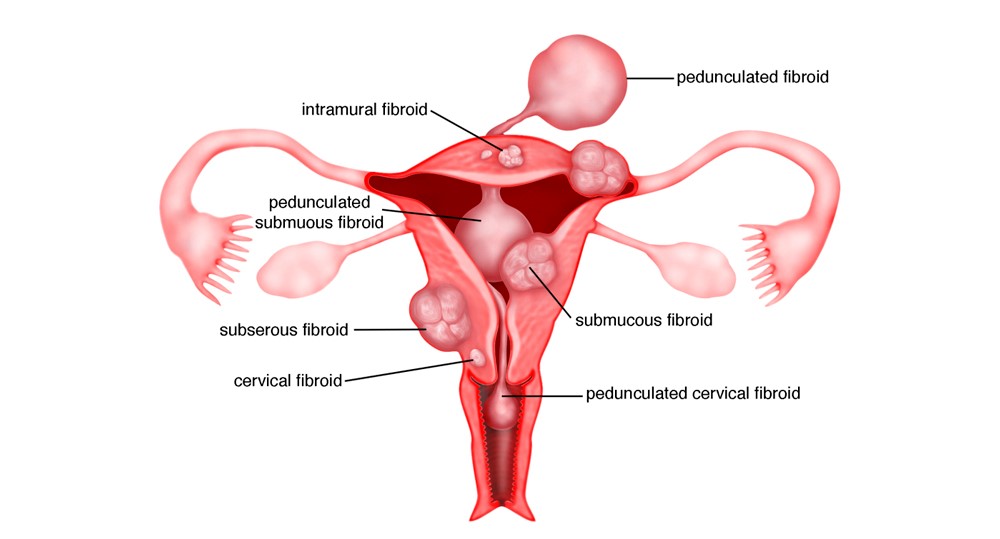-
 Toll Free No 9146-744-744
Toll Free No 9146-744-744 - Appointment
A typical kind of noncancerous growth that can develop in the uterus is called uterine fibroids. Although not all fibroids create symptoms, when they do, such symptoms may include painful sex, frequent urination, back discomfort, and heavy menstrual bleeding. Larger fibroids can be treated with medication or surgery, but smaller fibroids frequently don't require treatment.
Leiomyomas or myomas i.e. uterine fibroids are the muscular tumors that grow in the uterus. Fibroids vary in size, shape, and location. They can show up in the uterus, uterine wall, or on its surface.

Uterus removal surgery is recommended when woman’s fibroids are large, or has heavy bleeding and she is near or past menopause or does not want children.
It destroys the endometrial lining of the uterus, it also controls the heavy bleeding, but woman may not become pregnant thereafter.
The procedure removes fibroids without damaging the uterus. This procedure can be done laparoscopically too.


Uterine fibroids are noncancerous tumor that grows in the uterus. However, not all fibroids cause symptoms, but when they do, symptoms include – pain during sex, heavy menstrual bleeding, severe back pain, and frequent urination.
When the fibroid is 9-10 centimeters, approximately about 4 inches. If possible laparoscopic removal is preferred.
Myomectomy surgery is the best option to remove fibroids while preserving the uterus. For women who have fibroid symptoms and want to have children in the future, myomectomy is the best treatment option.
There are no serious complications associated with the surgery, but there may be some pain or bleeding post-surgery, and will need time to recover.
Laparoscopic myomectomy can take two to four hours based on the number of fibroids and the size. The complete recovery will take about two to four weeks.
Uterine fibroids are not cancerous. Fibroids are not associated with cancer. They do not increase the risk of uterine cancer.
Don't eat a diet full of processed foods, red meats, and high-fat dairy. Studies show that eating these foods can make your fibroids worse. The same goes for alcohol and caffeine.
Iron and B vitamins are important for a woman with uterine fibroids, especially if they cause severe bleeding. If you suffer from extended periods or heavy bleeding during your period, you may need extra iron or vitamin B. Vitamin D deficiency may increase a woman's risk for the growth of fibroids.
Many insurance companies provide coverage for uterine fibroid surgeries after a period of few years. Our HospiOne Team can guide you perfectly in this scenario.
OUR PROCESS IS EASY contact us for More information.
Copyright © 2023 hospione.com - All Rights Reserved | Developed by Digital Marketing StudioGenix LLP